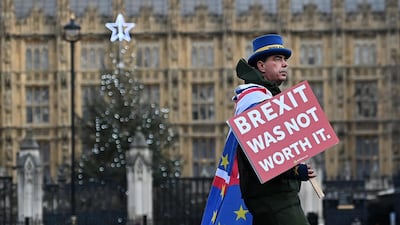When Labour MP Peter Kyle was stopped by a Remainer businessman in his constituency of Hove this week, he was surprised by the man's take on the UK's Christmas Eve trade deal with the EU.
While the owner of an imports and exports business which trades with EU countries described himself as "real Remainer", when news of the deal broke he rushed to the fridge to retrieve a bottle of Champagne he was saving for Christmas Day to toast the news with his wife.
“He had done so because he knew what the impact of no deal would have on his business. It was hard to hear somebody say that they were celebrating this deal, but I understand why,” said Mr Kyle.
The MP, also a Remainer, said the businessman influenced his decision to vote in favour for the trade deal.
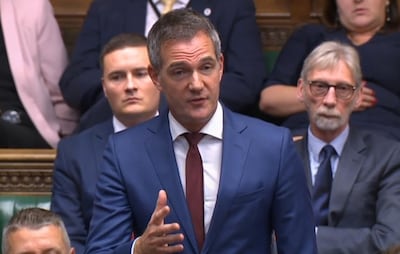
“[The businessman] is lucky, because the business that he has, which imports and exports products into the EU countries and other European countries ... was covered by this deal," said Mr Kyle.
"He is now preparing himself for additional paperwork and bureaucracy and having to take on extra staff to do it. But he is covered by some of this business deal.”
Mr Kyle shared the story in Parliament on Wednesday, shortly before MPs overwhelmingly voted in favour of the EU (Future Relationship) Bill by 521 votes to 73, thanks to the Conservative majority in the House of Commons and the support of the Labour Party.
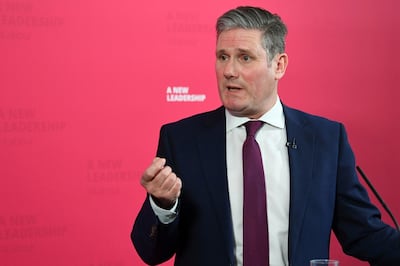
Sir Keir Starmer, leader of the opposition, said Labour backed the deal because "a thin deal is better than no deal".
But he said Prime Minister Boris Johnson was dishonest because the agreement would lead to an "avalanche of checks, bureaucracy and red tape for British businesses".
He spoke of a "gaping hole" for the services sector, which was largely omitted from the deal and accounts for 80 per cent of the UK economy.
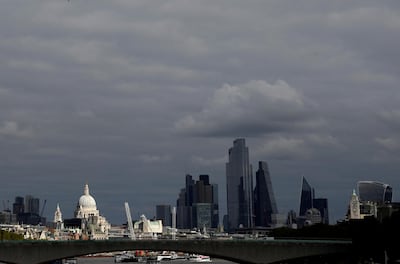
The City of London also faces an anxious wait to learn on what basis it can continue dealing with Europe, as the trade deal did not cover Britain's finance sector, meaning automatic access to the EU's financial markets ends on Friday.
Regulators in the UK and EU will be on alert for market dislocations on January 4, the first trading day of the new year.
The EU wants to reduce reliance on the City of London for financial services and for more euro-based trading in the bloc's financial centres, such as Frankfurt.
This could divide Europe's stock, bond and derivatives markets into two separate trading pools, raising concerns that investors will get less competitive prices.
Another concern is the trade in derivatives, with the Bank of England warning that trade in interest rate swaps worth around $200 billion could be disrupted, because banks operating in Britain and the EU must trade inside their own jurisdiction, or on approved platforms in New York.
This may force Britain at the last minute to ease its restrictions on swaps trading to minimise disruption.
Nikhil Rathi, chief executive of Britain's Financial Conduct Authority, said there may be disruption "given the scale of change", but overall "we are satisfied there has been good proactive management of the risks across the system".
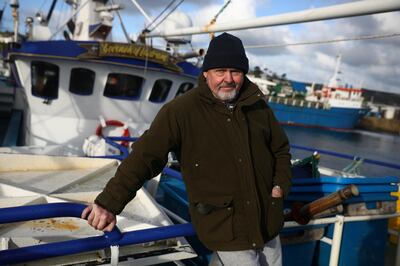
Another sector to react against the deal was the fishing industry, where fishermen accused the government of selling them out.
Phil Mitchell, the 51-year-old skipper of the 23-metre Govenek of Ladram boat in Cornwall, said "Boris the betrayer" had let the industry down and "dumped it from a great height.
For the Brexit supporter, the deal is a huge let down because it allows some EU boats continued access to Britain's rich inshore coastal waters.
The UK's deal with the EU secures British trade with the EU bloc free of tariffs and quotas on goods, vital for industries much larger than fishing. But fish were among the final issues to be hammered out, with Mr Johnson saying the deal increases the quota for British fishermen equal to 25 per cent of the value of the EU catch in UK waters, and will be phased in over five years.
While the government said some EU vessels will have access to some UK territorial waters during the five-year adjustment period, fishermen said in practice EU boats will retain the rights forever.
The complexity of the deal texts means even maritime lawyers are uncertain of the full details, with confusion for the UK's meat industry, as raw sausages and other minced meats can no longer be exported to the EU from January 1, according to the new rules.
Meat industry bodies joined a conference call with ministers on Tuesday to seek clarification on the issue, with the hope that the government will continue talking to the EU to push through and create an export health safety certificate for the products.
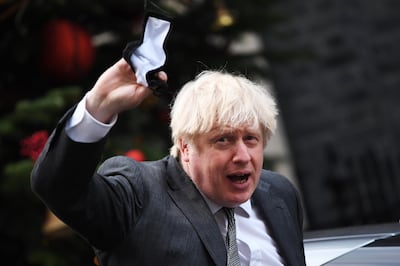
While the new deal may not suit all, the consensus in Parliament on Wednesday was that having an agreement in place gives businesses across the UK a clear framework to work from as the UK finally exits the EU on December 31.
Maddy Thimont Jack, associate director at the Institute for Government, said the Brexit deal is a big achievement, but it leaves little time for businesses to prepare.
“Reaching a deal so late in the day brings problems. It leaves very little time for scrutiny and for businesses to digest what the implications are for their operations – and to be ready to comply with new rules on New Year's Day," she said.
Michael Gove, the Cabinet minister in charge of Brexit preparations, said this week that Britain's businesses and travellers face a "bumpy" post-Brexit period as they adapt to new EU regulations.
Mr Gove said there would be practical and procedural changes to consider, and urged travellers heading to the EU to make extra checks, such as on the validity of their passports, travel insurance and mobile phone roaming charges.
While challenges are expected, many MPs at the debate in Parliament said the deal should be seen as “the start” of the negotiation process with more to come to help iron out some of the challenges facing certain sectors.
“That is why I will be stepping up and … supporting this deal and fighting for the deal to be a starting point, not an end point going forward,” Mr Kyle told Parliament.
On Tuesday, Mr Johnson's deal received the backing of the European Research Group, formed of a group of influential Conservative Brexiteers, which said the agreement “reaffirms the sovereignty of the United Kingdom”.
While the ERG lauds the return of the UK’s sovereignty, other think-tanks said that the country had placed this matter ahead of economic needs.
Charles Grant, director of the Centre for European Reform, said the UK-EU trade deal prioritises “sovereignty over economics” and politicians will soon be talking about how to improve the deal.
“Very little about the UK’s long-term relationship with the EU has been settled,” he said.
Mr Grant said that achieving the free trade agreement in 10 months is extremely quick and that most British people have no idea how hard Brexit will be.
He warned that manufacturers and farmers will face irksome checks at borders for things like customs, VAT, safety and security, plant and animal health, and much else, while services companies will lose access to the single market unless they set up subsidiaries within it.
“British airlines and freight firms will no longer be able to operate freely within the EU. Citizens will lose the right to travel for as long as they wish, work, study or reside in the EU," he said.
Other industries and institutions that have become accustomed to employing EU citizens – such as farming, food processing, hospitality, care homes, construction and universities – will also face difficulties, Mr Grant said.
Meanwhile, the Institute for Public Policy Research said this week that UK workers' rights and climate and other environmental protections risk being eroded by the deal, with commitments to maintain fair competition between UK and EU businesses considerably weaker than expected.
“This thin deal is better than no deal at all, but still creates major trade barriers with our closest neighbour, which will inhibit growth and slow the economic recovery,” said Marley Morris, the IPPR’s associate director for immigration, trade and EU relations.
“The protections it offers on labour and environmental standards are also surprisingly weak and appear to leave considerable scope for a UK government to weaken EU-derived protections."
While the think-tank highlighted three benefits from the deal – tariff-free and quota-free trade in goods, continued social security coordination, including healthcare coverage, and continued data sharing for security purposes – it said the agreement was only preferable to a no-deal outcome.
The Best of Britain Think Tank also said Mr Johnson’s deal had prevented the damaging effects of tariffs on UK industry, but that it is a "massive downgrade" on what was promised.
“A free trade deal is a good starting point for modern trading partners but, without cooperation over industry, and environmental standards, not to mention workers' rights, UK businesses will be hurt and the British people will be left worse off,” said Best for Britain chief executive Naomi Smith.
